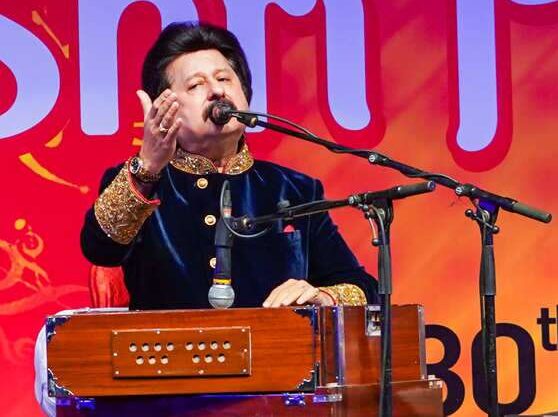Pankaj Udhas death: Ghazal maestro leaves behind immortal notes
Pankaj Udhas, the highly gifted singer renowned for revitalizing ghazals, has passed away at the age of 72. Udhas mesmerized audiences for decades with his unique style.

The Udhas family confirmed his death due to a prolonged illness. In a statement shared on Instagram on Monday, Pankaj Udhas’ daughter Nayaab announced,
“With a heavy heart, we are saddened to inform you of the sad demise of Padmashri Pankaj Udhas on 26th February 2024 due to a prolonged illness.”
Soon after Nayaab shared the news of the singer’s demise, his fans swamped the comment section and posted their condolences. A fan wrote, “May his soul rest in peace.” “I’m so sorry to hear of your loss, stay strong and please accept my condolences,” another user wrote. “Deepest Condolences and Prayers,” another user posted.
“He passed away around 11 am at Breach Candy Hospital,” according to a family source. His funeral will take place on Tuesday. Pankaj is survived by his wife Farida Udhas, daughters Nayaab and Reva Udhas, and brothers Nirmal and Manhar Udhas, who are also singers.
Pankaj Udhas’ career
Pankaj Udhas is best known for lending his voice to memorable tracks like Chitthi Aayi Hai from Mahesh Bhatt’s 1986 crime thriller Naam, Chandi Jaisa Rang Hai from Pravin Bhatt’s 1998 film Ek Hi Maqsad, Aaj Phir Tumpe from Feroz Khan’s 1988 action thriller Dayavan, Jeeye To Jeeye Kaise from Lawrence D’Souza’s 1991 romantic film Saajan, and Chhupana Bhi Nahi Aata from Abbas-Mustan’s 1993 revenge thriller Baazigar among others.
His ghazal career includes reputed albums like Aahat (1980) and tracks like Na Kajre Ki Dhaar, Aur Ahista Kijiye Baatein, Ek Taraf Uska Ghar, and Thodi Thodi Piya Karo

